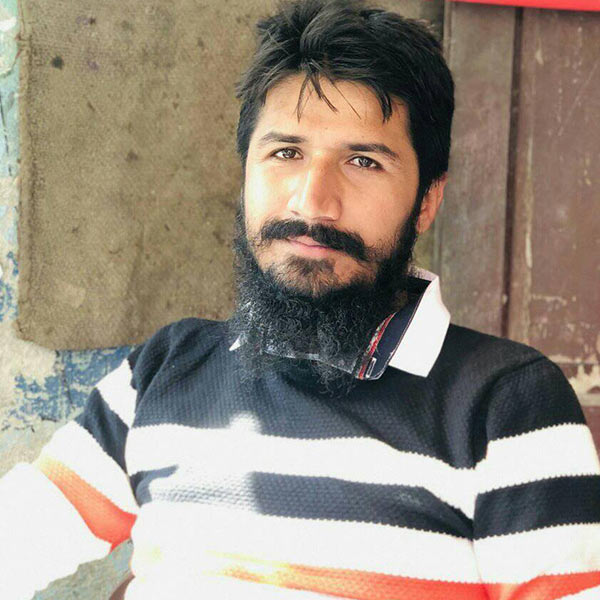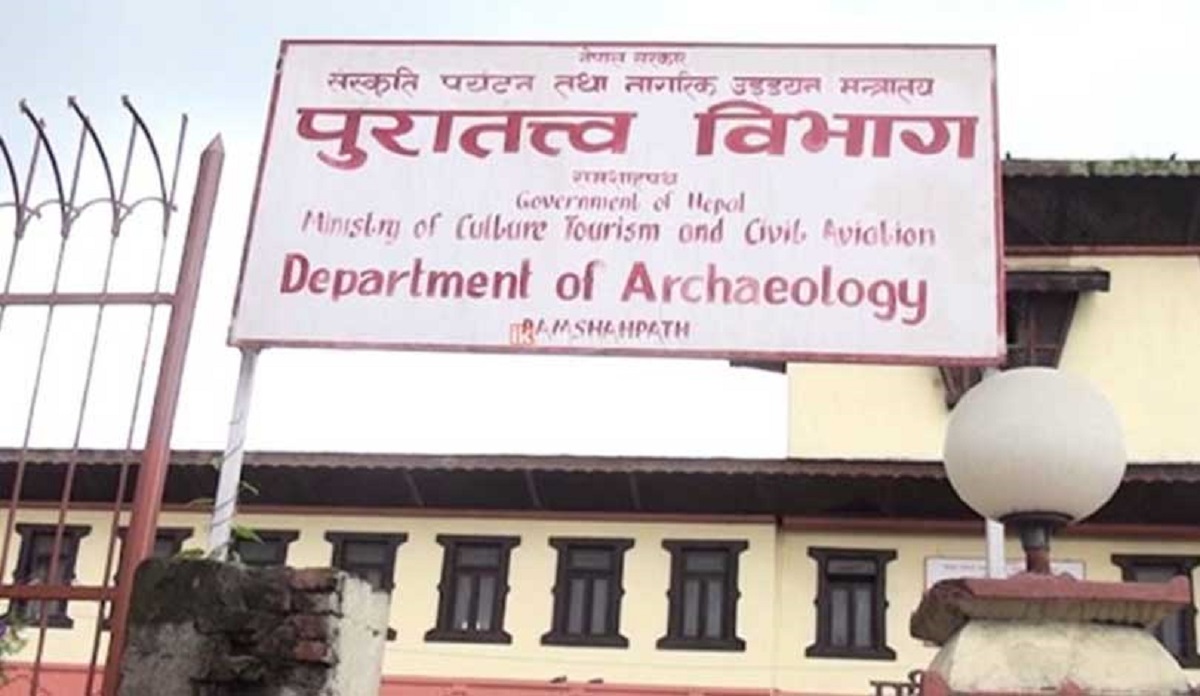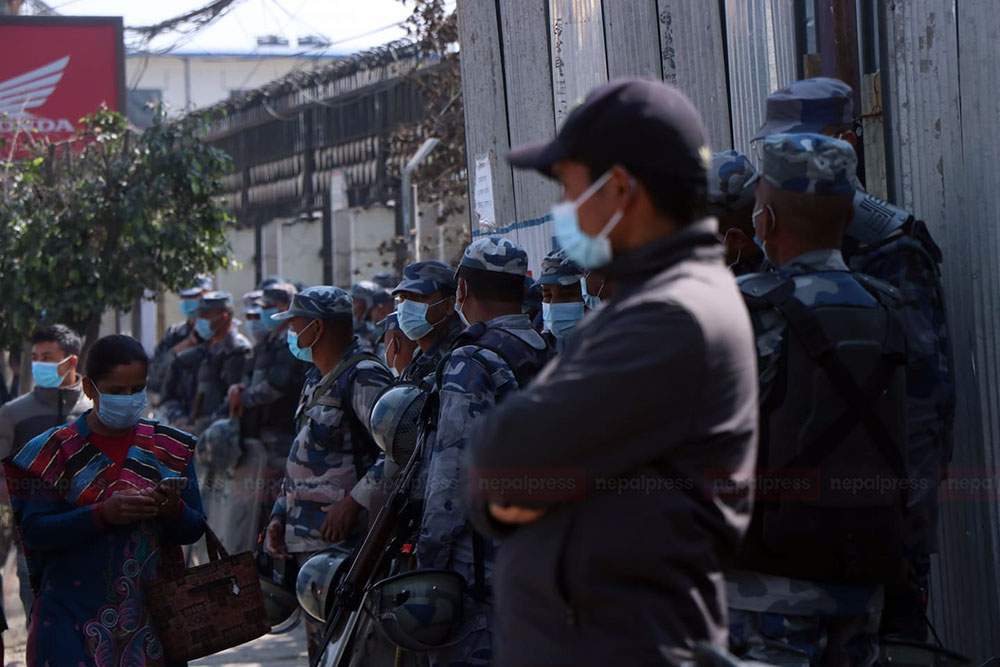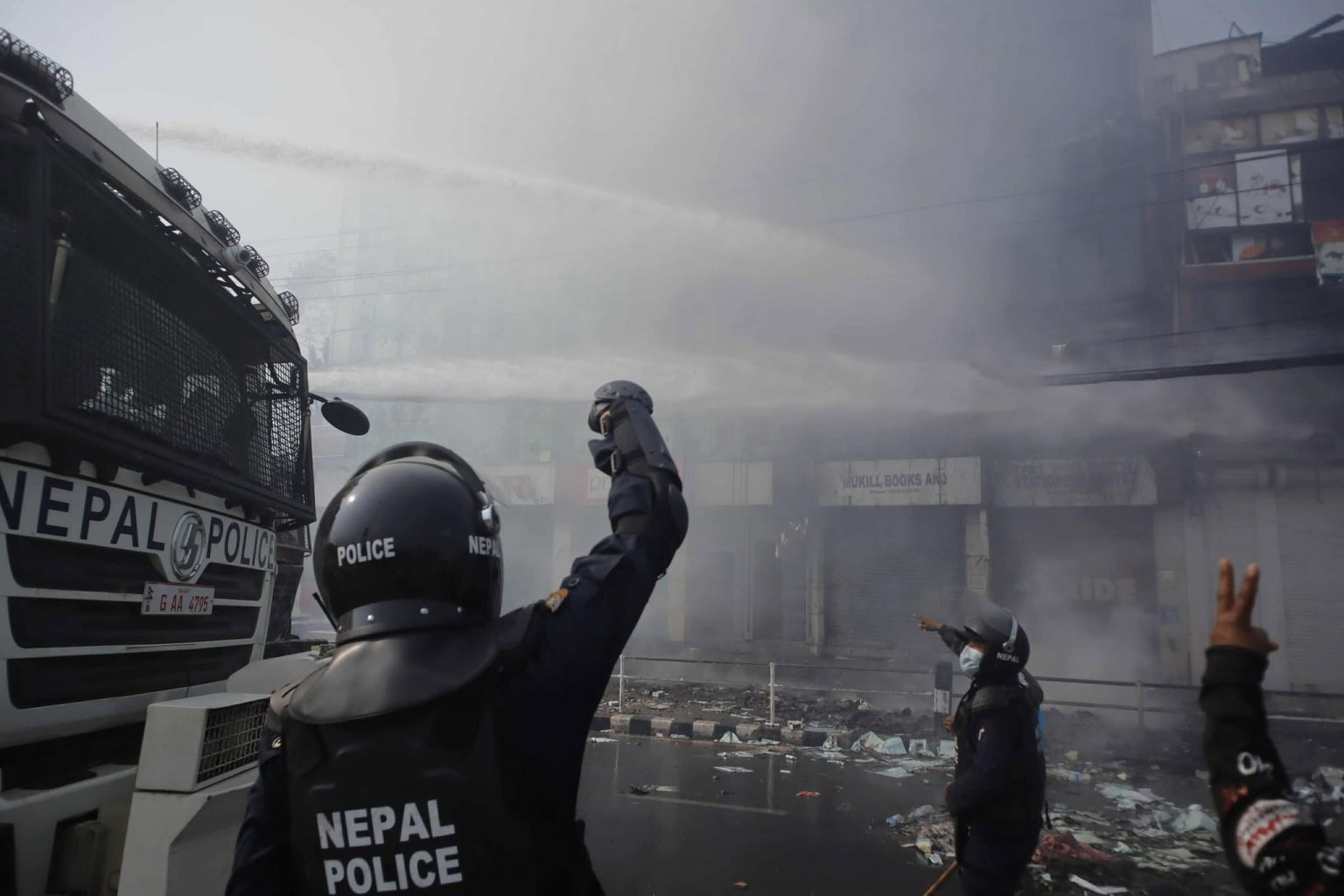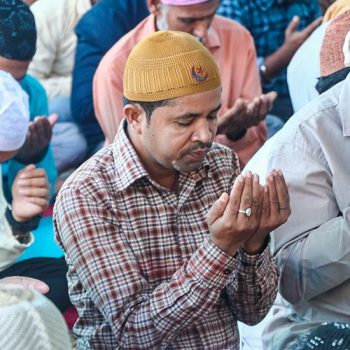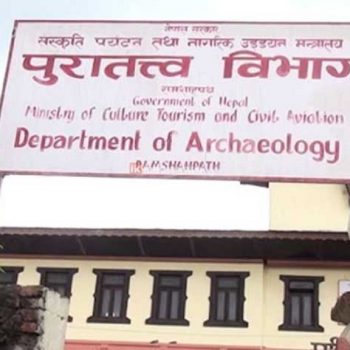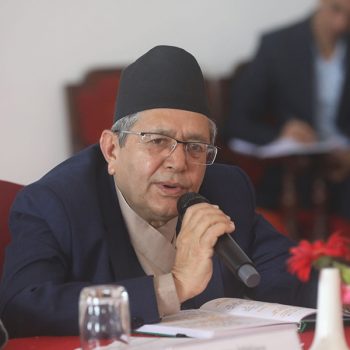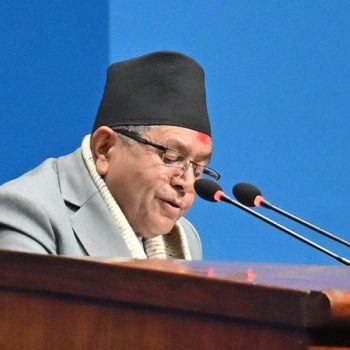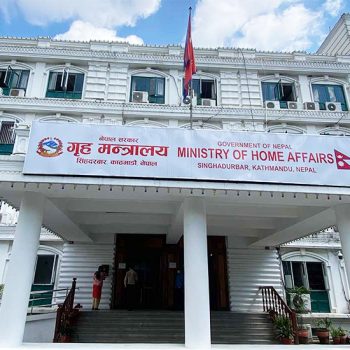‘Prachanda has matured as a Prime Minister’: Dr. Geeta Kochhar
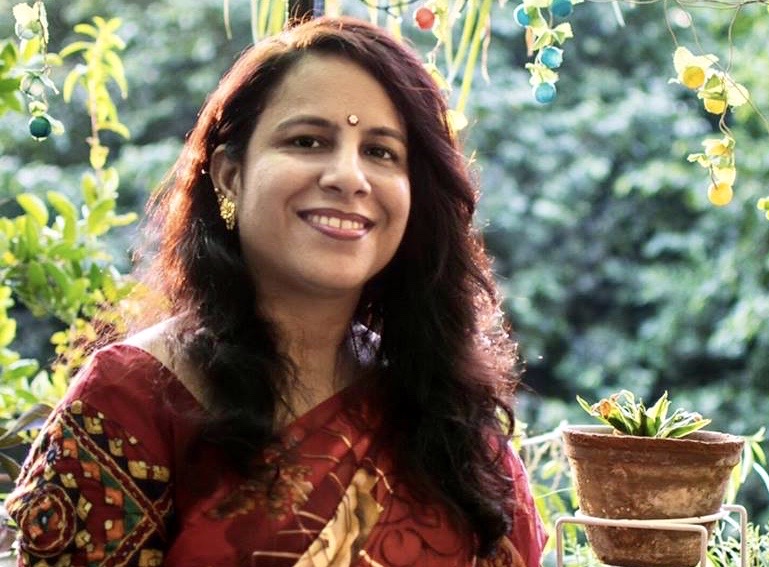
A fluent speaker in Chinese (Mandarin) language, Dr. Geeta Kochhar, is an Indian academician and Nepal observer. Dr. Geeta received her doctoral degree from School of International Studies of Jawaharlal Nehru University (JNU), New Delhi. She has been teaching graduate and postgraduate courses and also guiding PhD students at the JNU since March 2006 as Assistant Professor. Her active interest in Nepal affairs germinated in 2014.
Dr. Kochhar has shared her thoughts about Nepal-centric South Asian as well as world affairs with Birat Anupam of Nepal Press. Excerpts:
You are among very few South Asian scholars who are native Indians, fluent in Mandarin, and passionate to watch Nepal affairs. What is it like to see Nepal from this standpoint?
I did not have a research qualification or a degree in Nepal prior to organizing the first India-China-Nepal Conference in India in 2014. However, over the years, I have not only learnt a lot about Nepal, but also written quite a few stuff on Nepal and the bilateral as well as trilateral relations. It has been tough considering how people, especially in Nepal and those Indians working on Nepal look at me as an outsider to the field. Having said that, I think to me Nepal is a fascinating state that has been given least importance in Indian research studies. It not only has deep cultural and historical linkages with India, but enjoys a lot of privileges with the neighboring state. With the China angle, the relationship is just compounded into unnecessary complexities of comparison; while to me there seems no comparison. The approach of scholars looking at Nepal from the prism of competition between the two powerful neighbors i.e. India and China, in itself is a problematic beginning of understanding Nepal, its issues and the society in general.
In his first tenure as Nepal’s PM, Puspa Kamal Dahal ‘Prachanda’ visited China first in 2008. This time, despite an early Chinese invitation for Boao Forum, Prachanda is afoot to visit India first. He has repeatedly said so in his speeches from parliament to public gatherings. Why is it so?
I believe that PM Prachanda has matured as a Prime Minister and as a leader over the years. His first stint as PM to me was an unexpected position, whereby he was coming out of his revolutionary spirits and adjusting to the complex global geopolitical dynamics. He was then in a haste to build and prove his position and gain larger social legitimacy for his power in Nepal. However, now he has moved beyond gaining social recognition and is assertive in his approaches with other leaders. Why India first now? I can even ask why not? After all, being the PM of Nepal, the closest and important neighbor of India, having religious and political ties, he surely needs to continue the long-held tradition, unless he is looking at disturbing the power matrix between India and Nepal, as was initiated by the former PM Khadga Prasad Sharma Oli.
India did not invite Nepali leaders both in Raisina Dialogue and to G-20 forums. It is an intentional or accidental move?
I do not think that there is an intention to sideline Nepal, though in Nepal a strong narrative has been anti-India. Yet, there surely is some lesser significance to smaller neighboring powers in lieu of the great turmoil happening globally. India has also been on the tenterhooks to deal with risen and rising powers, which is where I see slow progress in PM Modi’s call of a ‘neighborhood first’ approach. On the other hand, Nepal also needs to make its choices clear.
From inviting all leaders from SAARC nations in his first swearing-in ceremony as Indian PM to neglecting SAARC summit after 2014. Why Modi administration is not serious about SAARC?
In many of my writings, I have been advocating that SAARC is now irrelevant, though some voices in India and many in Nepal advocate the revival and importance of SAARC. The world is undergoing fast transformations. We cannot stick to old policies and plans that do not work to create peace and harmony in the region. Development should be the focus and somehow I do not see that SAARC has over the years worked to create a concrete development agenda for the benefit of all nations. Besides, the world knows India has problems with Pakistan-backed and funded terrorist groups. Indeed, PM Modi began his tenure on a very positive approach to build ties with all SAARC countries, but the challenges are there for all to see. India has not yet abandoned SAARC, but if it has to be revived, then there will be a need to reframe the terms and conditions of its working, provided all SAARC nations including Pakistan agree on it.
India does not have a problem with Pakistan when it comes to face-to-face meet-ups at Shanghai Cooperation Organization. But, it does not like doing so at SAARC Summit after 2014. Why so?
I think one should first understand the complexity of SCO and the terms of working. India became a member from an observer to a China and Russia-initiated organization. One of the objectives of SCO is to root out terrorism, which is where India should join to raise its concerns over terrorism germinating from Pakistan for other major powers. However, in the case of SAARC, India is the major power that protects all other powers in some sense or the other, With Nepal in specific, India has the obligation to defend. How can SAARC take up the agenda and exert pressure on Pakistan. It has never happened until 2014 as well. We expect Russia and China as the UN P5 members to join hands to support our cause for greater peace and harmony in the region.
From student to Assistant Professor, you know JNU both as pupil and professor. It is said in the public that Indian Government is not supportive of JNU budgets. JNU Vice-Chancellor Santishree Shulipudi Pandit has publicly expressed her displeasure on it. Modi’s trusted cabinet member S. Jaishankar also did his doctoral degree from JNU itself. Still the Modi Government is not open-heartedly when it comes to budgetary allocations for JNU. Why is this happening?
Budget constraint is not just for JNU, but also for other universities. For the kind of development and economic objectives the government has for India, and considering the challenges pandemics have posed to the nation, it is obvious that all will have to share the burden. The government is moving towards diversification of funds, which means a possible PPP model, i.e. public-private partnership model. The state as a complete supporter and provider of public goods like higher education will gradually change. This is where JNU, which has the lowest fee structure and the higher education is almost free for all, will need to make re-adjustments. JNU budgets will need to be allocated in a manner that the state does not take the entire burden; instead the state reserves some budgetary allocations to build many more JNU like universities in India.
Besides two immediate neighbors-India and China, Nepal has seen growing diplomatic appearances from its sky neighbor the USA in recent years. Does it have any strategic undertone or is it just a normal happening?
This is a very relevant issue for Nepal. I have been telling many Nepali reporters and scholars of Nepal for the past few years that the future of competition is not between India and China in Nepal, but Nepal becoming a state of proxy war between the USA and China. Nepal has a huge community of Tibetan migrants, besides being in control of areas like Mustang. It has a lot of Buddhist Monasteries, which are also a source of direct or indirect control and influence over communities. As China continues to exert pressure on Nepal to control Tibetan refugees, and the USA uses these communities to target China, the tension in Nepal will exacerbate. Besides, after Nepal has joined MCC, China views it as a step towards consolidating USA-Nepal strategic and even military alliance. China wants Nepal to join the strategic alliance of its own overstretch, instead of falling into the arms of US-led Indo-Pacific. Hence, many more complicated issues will crop up in future as the competitive rivalry between the USA and China becomes intense.
In his book ‘The India Way’, S. Jaishankar says the Asian Century is possible only after Indian and Chinese cooperation. How possible is it in the near future, at least in South Asia?
Asian century is a dream many Asians see, but it is a difficult and challenging proposition. We have complex border issues and geopolitical challenges. We have not yet even reached a consensus of who is a part of this Asian century conglomerate. However, having said that, taking from what Dr. S. Jaishankar says that it is only possible if India and China cooperate; I can only add that if the present leaders President Xi Jinping and PM Modi cannot resolve issues and bridge this gap, then the possibility of future resolution and creation of any Asian century will be bleaker.
What are the opportunities and obstacles for small South Asian nations like Nepal, Bangladesh, and Sri Lanka in ongoing China’s and India’s geopolitical equations?
As I mentioned, for me to see a geopolitical competition between India and China is a very narrow approach to relations. The countries of South Asia, esp. Nepal, Bangladesh, Srilanka, all have deep and long standing relations with India. These countries surely view China as an economic opportunity for cooperation and for the development of their country, but it will be foolish to view them as looking for alternatives to India and making China as a choice. Each country moves from their national interest, and to build relations with China has been an inevitable choice for these countries. India should not and does not feel threatened with it. Yet, if there is a choice to be made, then I do not need to say whom will these countries prefer. As far as the geopolitical influence is concerned, both India and China are stretching and rising at a fast pace. Some jostle is inevitable for which other powers may have to make strategic balance.
What is the best diplomatic statecraft for Nepal to maintain its national interest in the geopolitically competing power plays in its territories and vicinities?
Though this question is best answered by a Nepali citizen, my humble suggestion is that Nepal should not deviate from its core values and traditional base. Nepal is seen as a place of spiritual harmony and the ecological environment is apt for humans to find solace. Instead of reaping short-term benefits, the political leaders should think about the long term future of Nepali citizens. Nepal has already endured a decade of turmoil and chaos, the leaders and the representatives of the masses should focus towards development and rooting out absolute poverty. Nepal should not allow its territory to become a playground of multiple powers, as has been the case with multiple NGO funding and soft power tactics of a few powers. Preserving civilizational linkages and traditional heritage is what the present generation of leaders can give the best gift to future generations.


